Columns
Nicaragua: The Sandinista Revolution cools off, by Owei Lakemfa
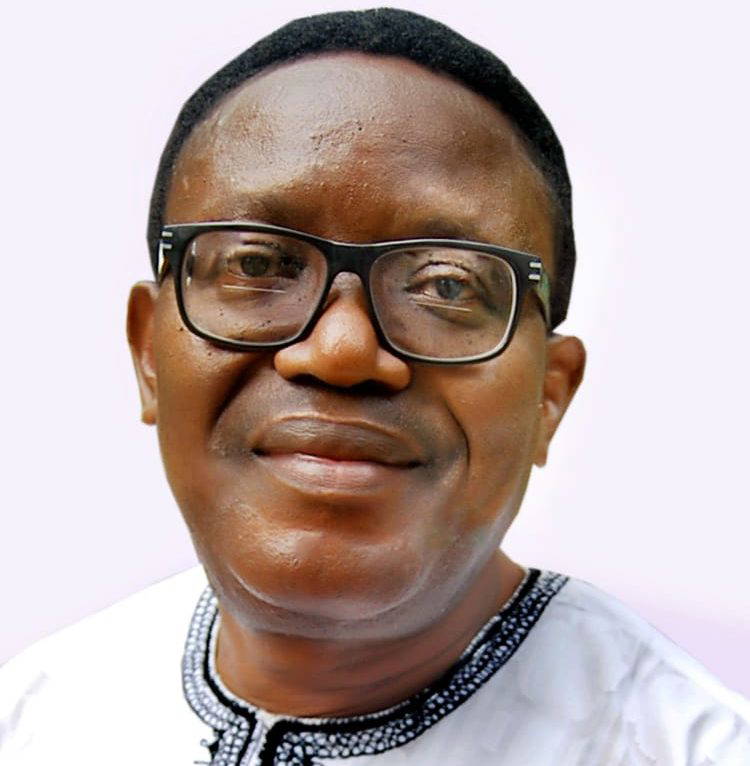
Nicaragua: The Sandinista Revolution cools off, by Owei Lakemfa
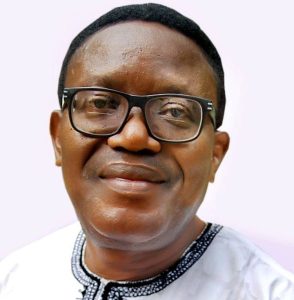
IT was stunning. If it were a football match, it would have been said to be against the run of play. Nicaraguan youths who had risen against the brutal regime of Anastazio Somoza Debayle, on July 17, 1979, rode into Managua putting an end to the reign of the United States-backed butcher. Somoza was so bestial that even his main backer had to publicly distance itself from him.
Somoza fled to Asuncion, Paraguay, but the unrelenting Nicaraguan youths sent a seven-person commando team of three ladies and four men after him. On September 17, 1980, the commandos in the “Operation Reptile” shot a RPG-7 rocket launcher into his car. The former dictator was burned beyond recognition and forensics had to identify him through his feet.
It was also the height of the Cold War, and these youths who called themselves Sandinistas made it clear they were carrying out a peoples revolution like was done 20 years earlier in Cuba by revolutionaries like Fidel Castro, Ernesto Che Guevera, Celia Sanchez, Haydee Santamaria and Camilo Cienfuegos.
The Sandinistas took their name from Augusto Ceaser Sandina, the Nicaraguan patriot who led the rebellion against the United States invasion of the country from 1922 – 1934.
The US would not tolerate youths in what it regarded as its backyard not just to defeat a pro-American regime, but also to be pro-East. It decided to crush the revolution, and had the means to do so, except that the Nicaraguan population were in full support of these patriotic youths.
Since Nicaraugua relied a lot on American donations, the US decided on three strategies. First, was to starve the Nicaraguan population into submission by stopping all American aid and imposing punitive sanctions that would not allow the country to trade. Secondly, it decided on outright terrorism by laying mines in Nicaraguan civilian ports and blowing up anchored ships. Thirdly, it established a mercenary force which included counter- revolutionaries. This force, established by 1981, was called the Contras.
Since the Regan administration could not legitimately use US resources to fund the Contra terrorists, it decided to illegally sell arms to Iran which itself was under sanction, and use the proceeds to fund the Contras. This racket, run by US Colonel Oliver North, became known as the Iran-Contra Scandal.
Given the multiple attacks by the US, a starving population which was unable to farm due to the banditry activities of the Contras, the Sandinistas made a call to the world to come to Nicaragua’s aid. There was a world-wide response with people making various donations but Nicaragua needed more. It needed its youth population to be free to battle the Contras, but they were also needed on the farms and, to carry out rural community development. So, the Sandinistas directly appealed to the youths of the world to come over to Nicaragua and assist.
Youths from various countries formed International Brigades and began making their way to Nicaragua to defend the popular revolution. It was reminiscent of the International Youth Brigades that poured into Spain to fight for the Spanish Revolution of 1936 against fascists and extreme right forces. The latter were supported by Hitler’s Germany, Musolini’s Italy with US, Britain and their allies claiming neutrality. That war was the dress rehearsal for the Second World War and the victory of the fascists in 1939 led to that war.
This time, the Nicaraguans were not asking the international youths to pick up the gun, but naturally, they would need to defend themselves if attacked.
The Sandinistas were quite popular in Africa, particularly Nigeria. In fact, one of the then leading student leaders, Femi Ahmed, later Pastor Femi Israel, adopted the sobriquet, Sandinista. There were many Nigerians youths ready to travel and defend the Sandinista Revolution. But Nicaragua was quite far and there were no ready funds to pay for flight tickets.
So, two youths were picked to go represent Nigerian youths. One of them was Miss Ngozi Ojidoh, later Mrs Iwere. She was a French Language student of the Bayero University, Kano. She had been the Public Relations Officer of the National Association of Nigerian Students, NANS.
The other was the ‘indestructible’ Shola Mic Olorunyomi who had been President of the University of Ilorin Students Union. They joined other international youths in Nicaragua, and gave a good account of the resilience and commitment of Nigerian youths.
The Nicaraguan Revolution produced some of the most romantic revolutionaries of the 20th Century. There was Tomas Borge who in 1961 had, along with Carlos Fonseca and Silvio Mayorga, formed the Sandinista National Liberation Front. Fonseca and Mayorga died in combat, but Borge witnessed the revolution and became the Interior Minister. On April 30, 2012, he marched on at 81.
There was Nora Astorga, whose captivating story I told in my March16, 2018 tribute titled, “Nora Astorga: A Woman Like No Other.” In 1978, as a successful 30-year-old lawyer, she lured the Deputy Commander of the Nicaraguan National Guard, General Reynaldo Perez Vega, to a secret rendezvous where he died trying to resist arrest by a Sandinista commando unit.
When after the revolution she was appointed Ambassador to the US, the Americans rejected her appointment. So, the Nicaraguans appointed her their Deputy Permanent Representative to the United Nations, at which point the Americans had no choice but issue her a visa. On February 14, 1988, she fell to cervical cancer.
One of the most romantic Sandinista revolutionaries was the Catholic Priest, Miguel d’Escoto, who rose to become President of the United Nations General Assembly in the 2008/2009 Session, and significantly, the Libyan Permanent Representative to the United Nations in 2011.
He had revealed he was a Sandista rebel in 1977. Two years later, when the revolution was carried out, he became the Foreign Minister, a position he held for eleven years. Pope John Paul II had, in 1985, suspended him and two other priests, the brothers Ernesto and Fernando Cardenal, for serving in the revolutionary government. The suspension was lifted 29 years later by Pope Francis. Father d’Escoto passed on June 8, 2017 at 84.
Another set of brothers the revolution threw up were Daniel Ortega, who became President, and Humberto Ortega who was Chief of Army Staff. They reminded me of the Cuban brothers, Fidel and Raul Castro who held similar positions in their county.
However, unlike the Castro brothers whose comradeship was life-long, the Ortega brothers later split. Daniel led the country from 1979 -1990. Lost elections but was re-elected in 2006, and, again in 2021. Humberto felt that his brother should unite the entire country through tolerance and dialogue. On September 30, 2024, Humberto took his leave; his passage came at a time the Sandinista Revolution had cooled off.
Columns
Chief Denis Otuaro, the Guiding Star of PAP
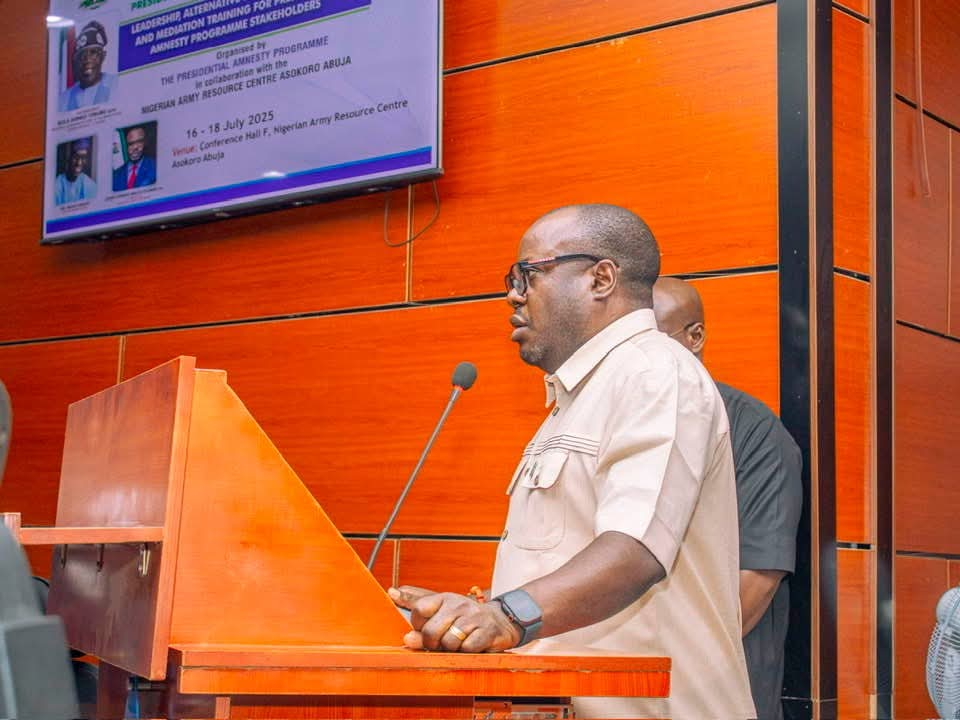
By: Professor Binebai
The Niger Delta has found a beacon of hope in Chief Dr. Dennis Otuaro, a leader of unimpeachable integrity, courage, and vision. As the helm of the Presidential Amnesty Programme (PAP), he has emerged as a champion of transformation, inspiring a region and a nation with his unwavering commitment to empowerment and progress.
In the realm of Nigerian leadership, there are those who leave an indelible mark on the sands of time, and Chief Dr. Dennis Otuaro is one such luminary. As the helm of the Presidential Amnesty Programme (PAP), he has etched a narrative of hope, redemption, and triumph, illuminating the path for the people of the Niger Delta. This tribute is a celebration of his extraordinary leadership, vision, and unwavering commitment to the cause of empowering the youths and transforming the region.
Chief Denis Otuaro’s stewardship of the Presidential Amnesty Programme (PAP) has indeed been a renaissance, a majestic sunrise after a long, dark night, as he infuses the initiative with the radiance of a new dawn.
Like the mythical Anansi, the wise and cunning spider of West African folklore, Otuaro’s leadership has woven an intricate web of hope and opportunity, capturing the challenges of the Niger Delta and transforming them into a rich mosaic of promise and progress. His vision, akin to that of the venerable Oracle of Delphi, has deciphered the complexities of post-conflict reconstruction, guiding the demobilised youths through the labyrinth of uncertainty, and into the bright light of empowerment and redemption.
Otuaro’s journey has been sustained by a resolute commitment to the cause, his leadership style a masterful blend of courage, wisdom, and compassion. His tenure has been marked by a symphony of progress, as the PAP, under his guidance, has orchestrated a harmonious balance of pacifism and pragmatism, transforming the region into a veritable Garden of Eden.
Like Athena, the Greek goddess of wisdom, Otuaro wields the power of transformation, his touch turning the arid landscape of despair into a lush oasis of hope and prosperity. His leadership has become a byword for sagacity, a testament to the transformative power of vision, courage, and compassion.
In the pantheon of Nigerian leaders, Otuaro’s name shall be etched alongside the greats, his legacy a shining testament to the indomitable human spirit, as he continues to weave a new narrative of hope, redemption, and triumph for the people of the Niger Delta.
The Niger Delta has found a leader of repute, a leader of courage, a leader of transformation, a leader of goodwill in the PAP. Let egocentric economic buccaneers and demonic agencies stop their campaign of calumny against this leader of glory.
To those who seek to undermine his efforts, we say: let envy and malice be silenced! Let the progress of the Niger Delta be the benchmark for greatness! Let Otuaro’s leadership be the inspiration for a new generation of leaders!
Columns
A Legendary Legacy: The Enduring Odyssey of High Chief (Dr.) Government Oweizide Ekpemupolo
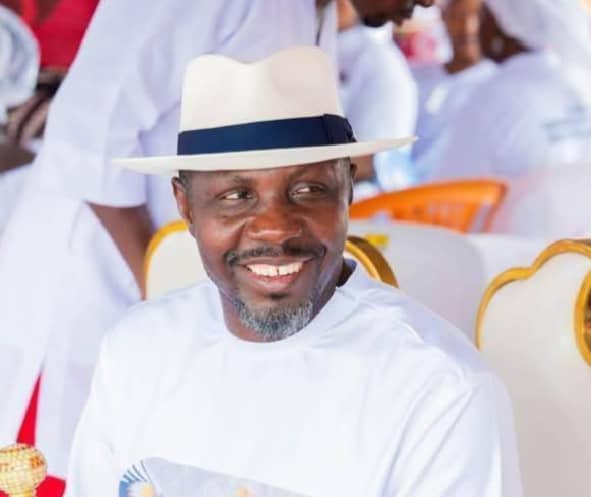
By: Professor Ben Binebai
In the realm of Nigerian leadership, one name resonates with mythical significance – High Chief (Dr.) Government Oweizide Ekpemupolo, affectionately known as Tompolo. Born on 12 April 1971, in Warri, Delta State, Tompolo has etched his name in the annals of history, leaving an indelible mark on the Niger Delta region. As a former militant commander of the Movement for the Emancipation of the Niger Delta (MEND) and chief priest of the Egbesu deity, he has navigated the treacherous waters of war and peace, leveraging his remarkable journey to bring succour and development to his people.
Tompolo’s metamorphosis from a militant leader to a peace advocate is a testament to his unwavering commitment to the progress of the Niger Delta. His decision to embrace the Amnesty Programme in 2009 marked a turning point, as he laid down arms and picked up the mantle of transformation. Today, he is revered as a hero, celebrated for taming the turbulent waters of the Creek boys and settling major political crises in the region. By putting the Ijaw image on the Nigerian map, Tompolo has redefined the narrative, showcasing the rich cultural heritage and resilience of the Ijaw people to the world.
A nationalist and statesman emerging from the boiling pot of agitation in the Niger Delta, Tompolo has consistently demonstrated his commitment to the development and progress of his people. His agency operates in close collaboration with the government, working tirelessly to implement projects and initiatives that benefit the Niger Delta region. His leadership style is characterised by quiet strength, strategic thinking, and an unwavering commitment to the progress of his people. His efforts have earned him recognition and accolades from various quarters, solidifying his position as a dependable pillar of the Ijaw nation.
As the last voice of the Ijaw nation, Tompolo’s legacy continues to inspire hope and progress for generations to come. With institutions established for national economic stability and prosperity, his impact will be felt for years to come. Tompolo’s story serves as a beacon of hope and resilience, inspiring his people to strive for greatness.
God bless this emergent leader of the Ijaw nation.
Columns
YOUNA: WARRI CRIES FOR PEACE AND JUJUSTICE
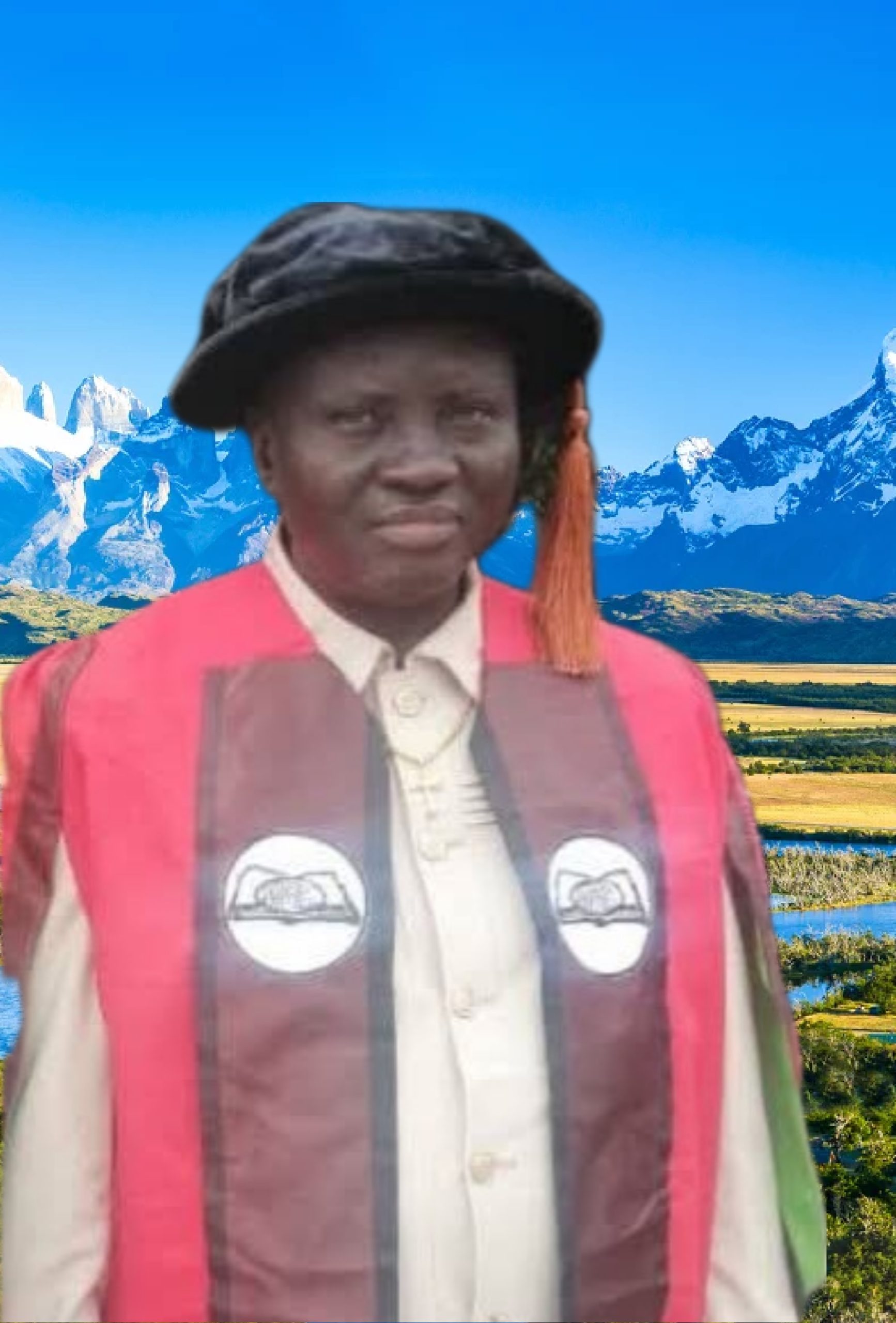
By: Ben Binebai
In the Niger Delta region of Nigeria, a city cries out for peace, justice, and unity. Warri, a land of rich cultural heritage and economic significance, has been plagued by recurring crises, sparked by provocative actions and claims of ownership by the Itsekiri group. The cry of Warri is a call to action, a reminder that our diversity is a strength, not a weakness, and that our common humanity is worth fighting for.
The Ijaw, Urhobo, and Itsekiri communities have coexisted in Warri for centuries, sharing a rich cultural heritage and a deep connection to the land. Occasionally uniting but deeply disunited because power and hegemony have often overshadowed their shared humanity, the people of Warri yearn for a future where their differences are celebrated, and their commonalities are the foundation of their unity. Warri’s significance extends beyond its current boundaries, as it has been a hub of economic and cultural activity for centuries. Before 1952, Warri was a thriving commercial centre, with the Ijaw, Urhobo, and Itsekiri communities contributing to its growth and development.
The city’s strategic location and access to the Niger Delta’s vast resources made it an attractive location for trade and commerce. Understanding Warri’s rich history and cultural heritage is essential to finding a lasting solution to the crisis.
It is time for truth to prevail to offer a lasting solution to the Warri crisis. The canoe of godfatherism should be withdrawn for the rule of law and for peace and progress to triumph.
The lie of exclusive ownership of Warri resists termination due to several factors, including:
Outdated court judgments: The Itsekiri establishment continues to rely on outdated court judgments, such as the 1925 judgment, to support their claim of ownership, despite subsequent judgments repudiating its validity.
Lack of political will: Successive governments have failed to address the problem and take the right and just decision, allowing the crisis to persist.
Absolutist claims: The Itsekiri claim is absolutist, while the Urhobo and Ijaw claims are limited, recognising ownership of portions of Warri by other communities.
Historical narratives can be deeply ingrained*: People’s understanding of their history and identity can be shaped by long-standing narratives, making it hard to change their perspectives.
Emotions and biases can override facts: When emotions and biases are strongly tied to a particular narrative, people may resist changing their views, even in the face of contradictory evidence.
Power dynamics can influence narrative control: Those in positions of power may use their influence to shape and maintain certain narratives, making it harder to correct lies and misconceptions.
Moreover, leadership plays a crucial role in shaping the future of Warri. As the saying goes, “When leaders refuse to embrace sacrifice, society dies.” Leaders who prioritise the greater good, make tough decisions, and invest in the future can help build a more harmonious and prosperous society. It is time for the leaders of Warri to put the needs of their people first and work towards a brighter future.
The cry of Warri is a call to action, a reminder that our diversity is a strength, not a weakness. Let us work towards a brighter, more harmonious future, where the beauty of our differences is celebrated, and our common humanity is cherished. May the cry of Warri be heard, and may we rise to the challenge of building a better tomorrow for all its people.




